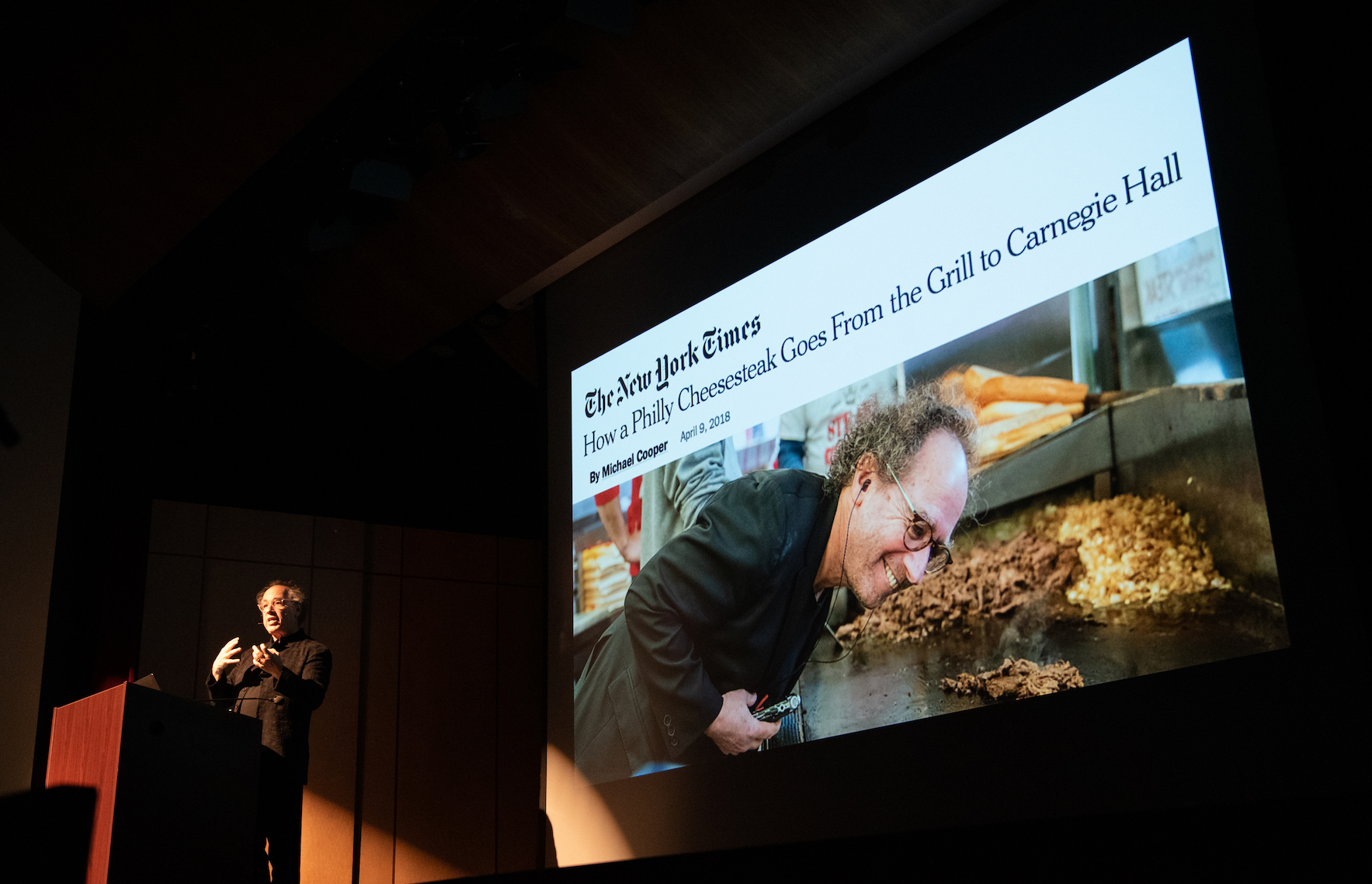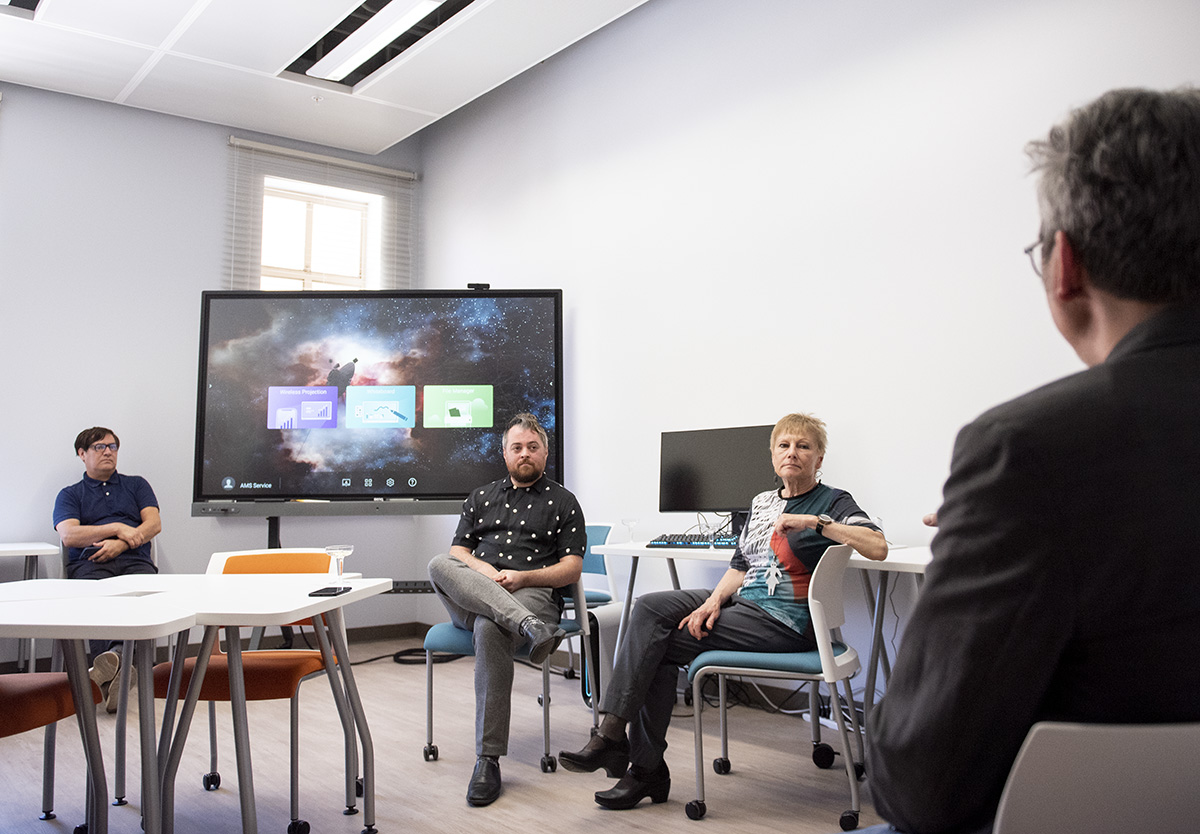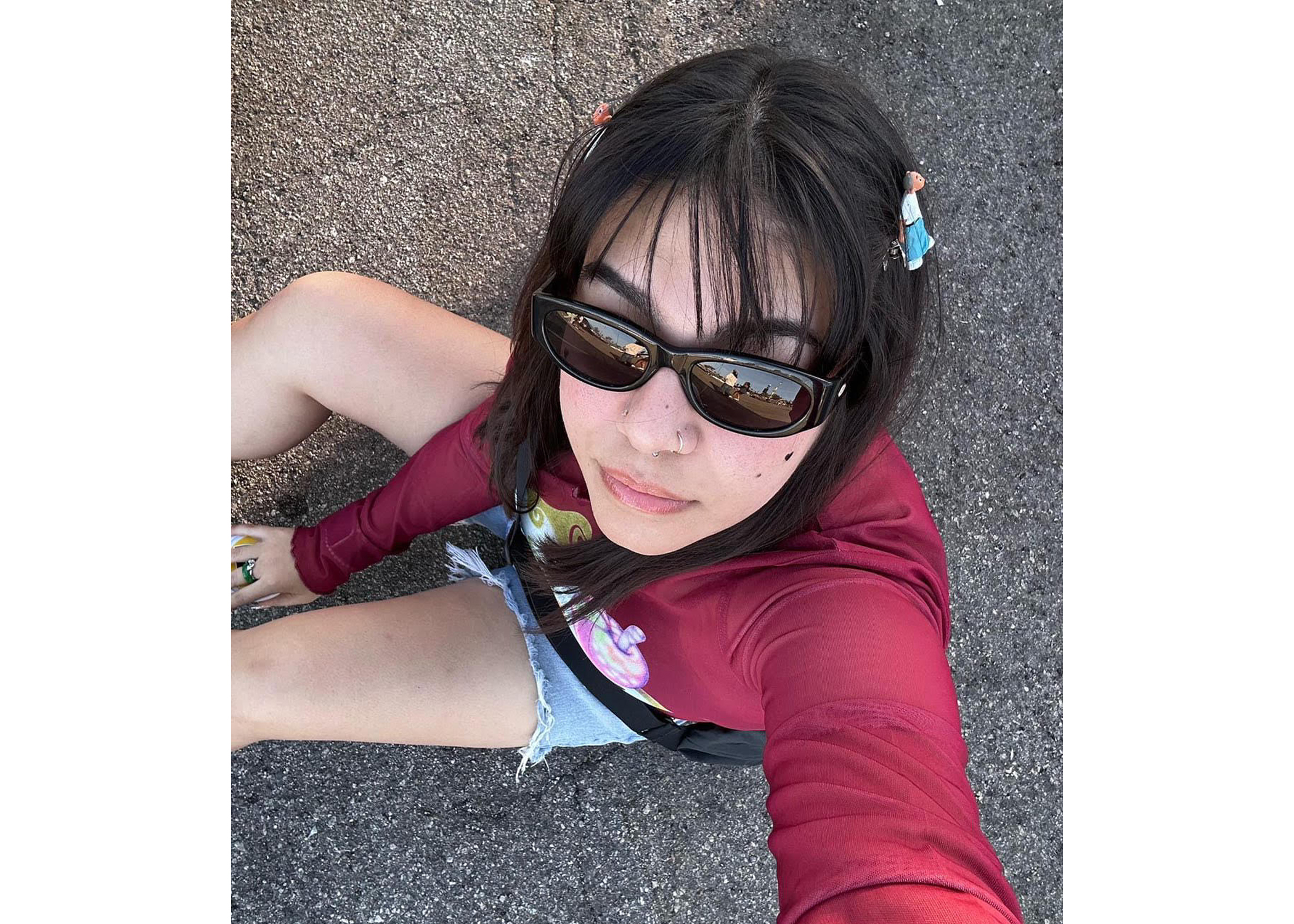Q&A: Ramesh Srinivasan talks new podcast ‘Utopias,’ future of media technology
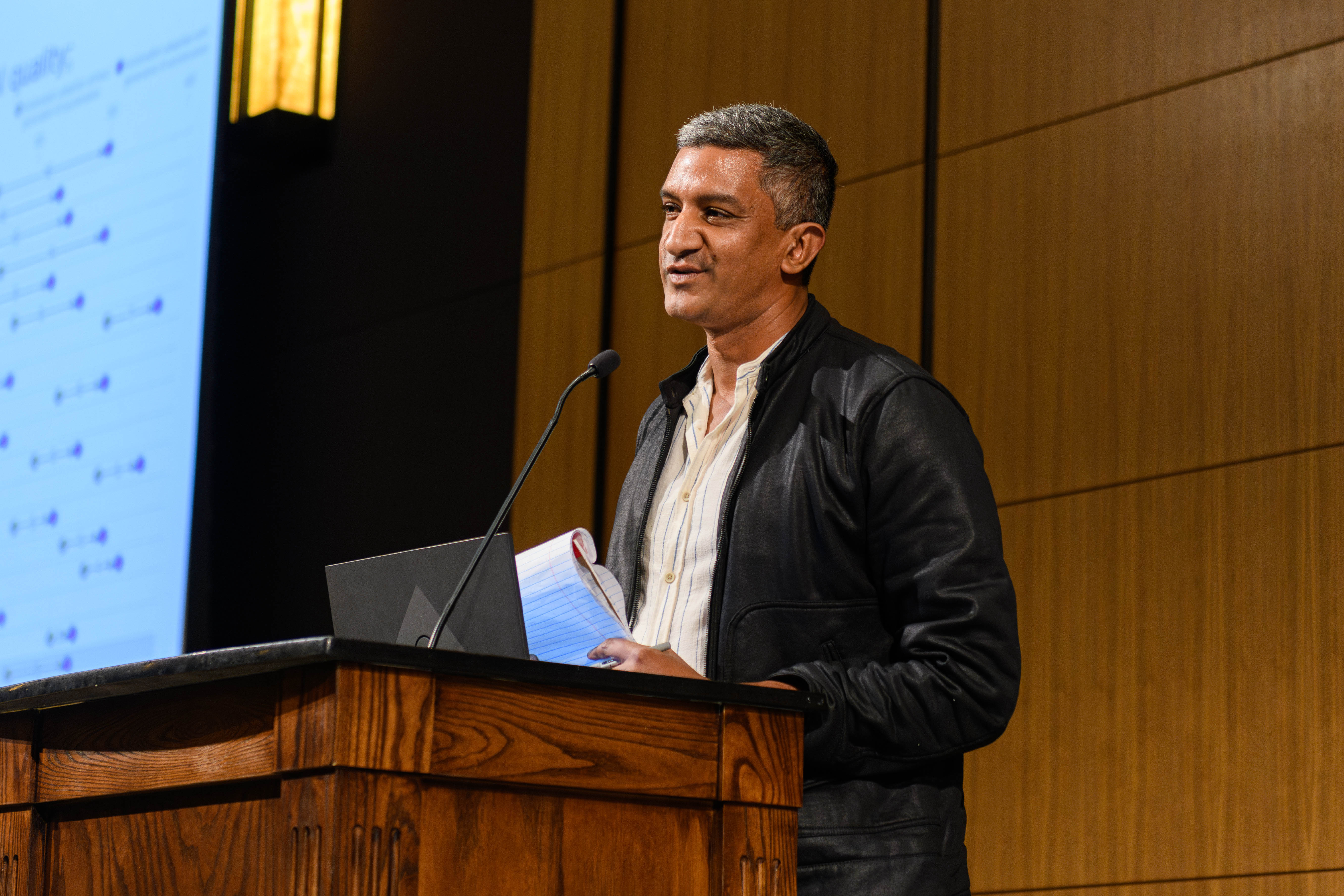
Pictured is Ramesh Srinivasan, a professor of information studies, speaking at the UC’s Academic Congress on Artificial Intelligence on Feb. 28. Srinivasan launched a podcast last month titled “Utopias.” (Nicolas Greamo/Daily Bruin senior staff)
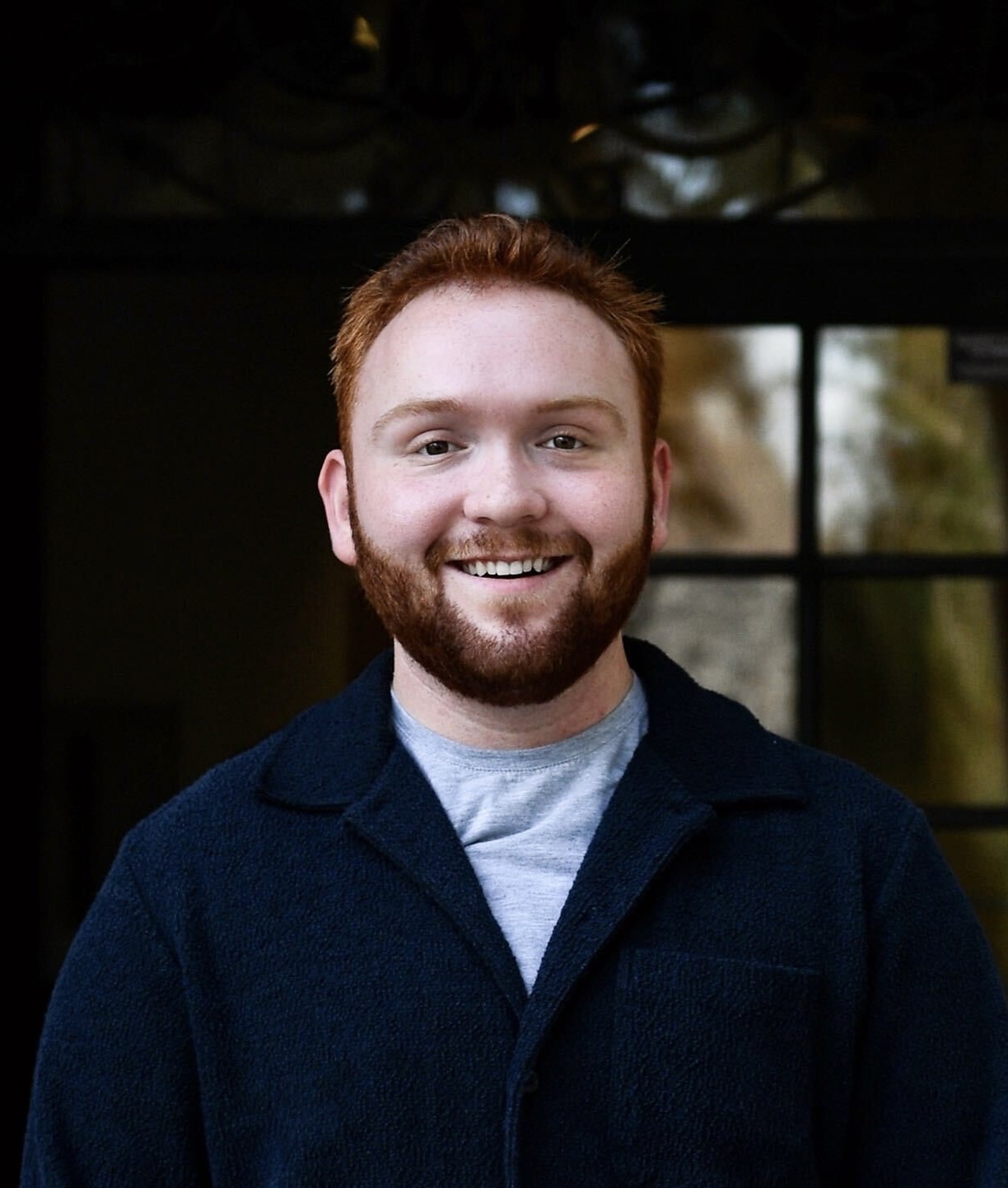
By Matthew Royer
March 15, 2024 9:05 p.m.
This post was updated April 2 at 8:27 p.m.
Ramesh Srinivasan, a professor of information studies, sat down with Matthew Royer, the Daily Bruin’s national news and higher education editor, to discuss Srinivasan’s new podcast “Utopias,” which spotlights his outlook on the future of media and what he hopes students will learn in a world surrounded by new technologies.
Srinivasan also serves as the founder and director of the UC Digital Cultures Lab, and he previously served as a campaign surrogate on Sen. Bernie Sanders’ 2020 presidential campaign. Guests on the podcast have included Andrew Yang and Cornel West.
This interview has been edited for length and clarity.
Daily Bruin: What is your vision for “Utopias,” and what does it mean to you?
Ramesh Srinivasan: I went to university at Stanford in the late ’90s, and I saw firsthand in my engineering classes how we were starting to create technologies that we prophesized would dramatically impact the world. This is something I saw even further when I was a graduate student at MIT in the Media Lab. And I had always been motivated by the question of, “What is the right way for life to be?” It’s motivated everything I’ve done since graduate school onward.
I started to see a direction for technologies to take digital technologies – like web technologies, even AI systems – that really could be in line with the diversity of peoples around the planet.
The next question is, what’s the next way to cultivate a sense of community and bring to light a sense that we’re not all alone, we’re not all divided, we’re not perpetually faded? We can do way better.
There are many, many voices that I know of personally and I see all the time that reflect a certain sense: There are alternatives that exist in the here and now, there are alternatives that have existed in the past and there are ones that we can together create for the future. I think of the voices that can drive the direction we take, including the technologies of tomorrow, to be ones that are from all disciplines and all fields.
I launched the “Utopias” podcast because utopias are a certain kind of idea of a vision of what life could be, not as a pipe dream, but as something that is potentially realizable if we start by thinking about and imagining and looking at really powerful voices and visions.
DB: You’ve mentioned how new media technology can change cultural, societal and even religious worlds here on Earth. Can you share your outlook on how media can change how we use technology, but also how it changes the world around us?
RS: From web platforms, from apps, to websites, et cetera, the reality is, life has become more and more mediated by digital technologies. We’re getting further and further away from ourselves, from what we actually can grasp and have power over as human beings. I think it’s really important that we take stock of that and look for alternatives.
This has had a massive impact on global economics. We’re talking about some of the wealthiest companies in the history of the world. It’s really had a massive effect also on informational and cultural diversity because many of the voices that we end up viewing and experiencing when we go on technology platforms, especially social media ones, are ones that are fed to us, either based on existing bubbles that we’re within or based on predictions of what will outrage us or inflame us.
We’re not really talking to and deeply learning from one another, and that’s not our fault. That’s being eroded by digital technologies that are taking everything we experience and turning it into data. But that data is being gathered by and folded in with almost no disclosure or transparency or accountability by the rest of us. That’s actually ironic, given that the internet, which started at UCLA in 1969 in Boelter Hall, is the most distance-bridging technology that has ever been created. You’d think that that type of technology could truly turn the globe into a village that truly represents the whole globe.
DB: What went into selecting who you’re going to have on “Utopias”?
RS: These are all people who are from all around the planet who stand for values that are truly democratic in my mind, and some are people of resistance to power that stifles our voices, like punk rock musicians and hip-hop musicians. Some of them are working in a spiritual realm to try to help support us all in recognizing that we’re all deeply interconnected around the planet. I see these as figures that are bridging figures, figures that don’t bow to that sense of fatalism and loneliness that is honestly amplified by social media.
The former president is kind of the biggest movement leader in this country. Trump – there’s an actual movement. That is the MAGA movement, right? And that’s a movement that is often built upon understandable fear, but unfortunately, practices of exclusion and discrimination, whether its supporters fully understand that or not. But where are the alternatives? That’s what I always look for.
The idea is to cultivate and try to pollinate and bring out those sorts of voices that are giving support to that possibility of life being something that’s more compassionate, more caring and more equitable.
DB: What do you hope students take away from listening to “Utopias”?
RS: This podcast will directly reach undergraduates, I think, where they are and where they hope to be, because it’s a way out of the mess. There’s a lot of scholarship concerns with recognizing and calling out injustices, and I really respect that.
I think the question that many undergraduates are left with, and this is something I see personally from having taught undergraduate courses every year since 2005, is a sense of, “Well, what can we do about it all? What’s next? What else is there? What else could be?” There’s a lot of fatalism that is set in for totally understandable reasons.
I want for all undergraduates to recognize that these are very accessible voices that I’m bringing on. These are voices of people that they may know of or already like.
I’m hoping that this is an initiative that is about our entire campus. This is the only university I’ve ever worked in, and the entire University of California system is one of the great jewels we have left in public education in this country. We really represent a sense of these same voices that are the voices I’m trying to bring out in the podcast.



